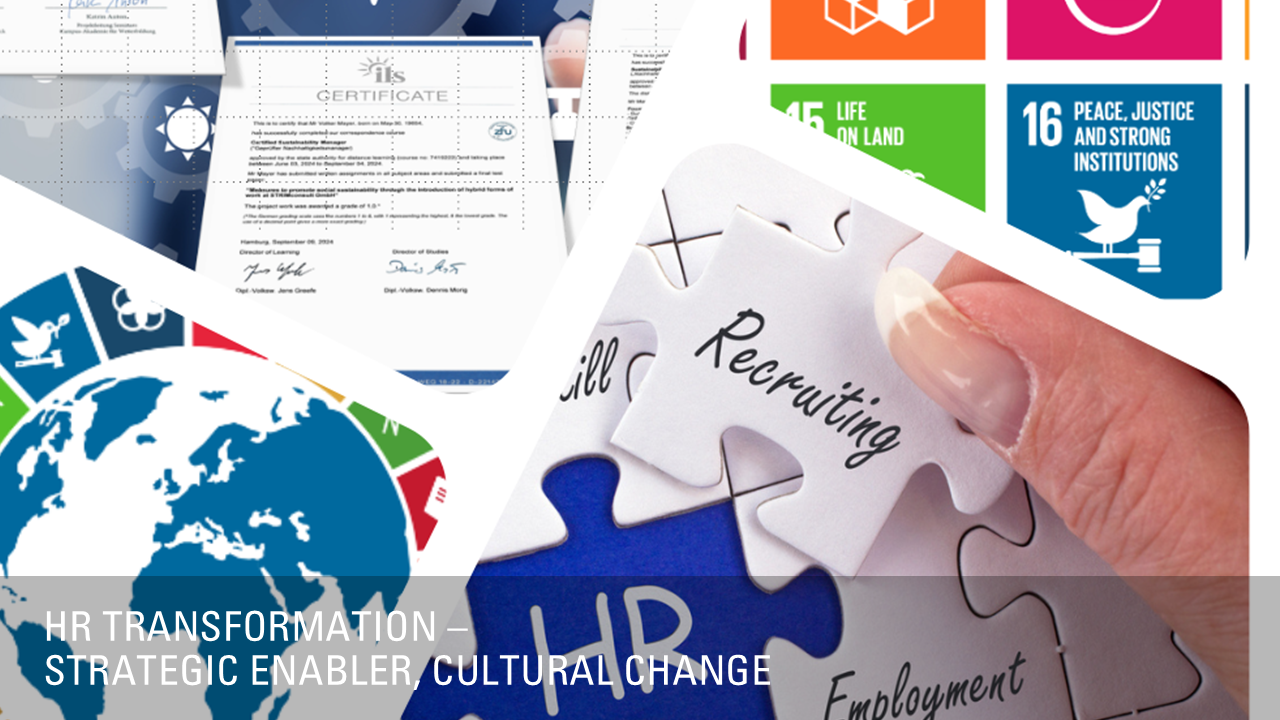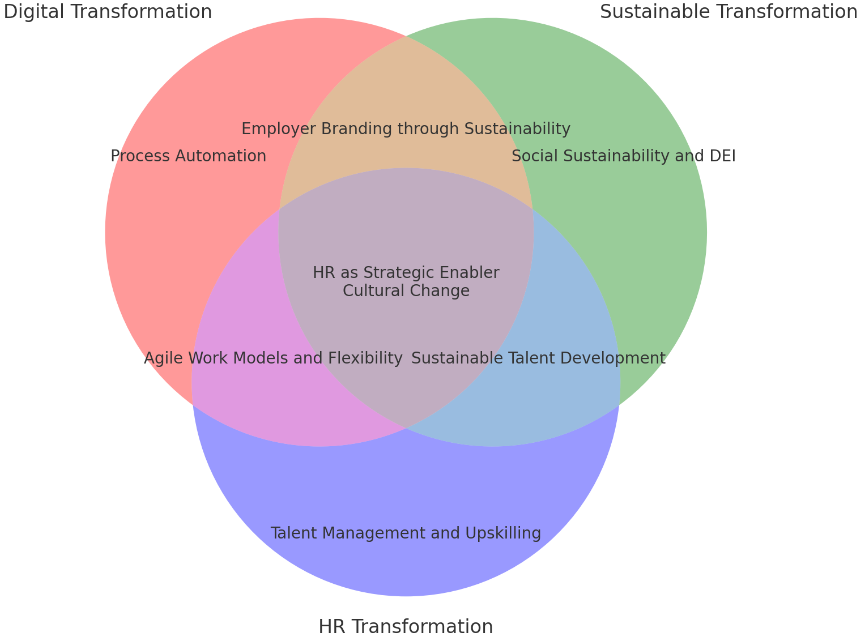When HR transformation is added to twin transformation (digital and sustainable transformation), this can be called a triple transformation.
This term indicates that companies are undergoing three major changes at the same time: Digitalization, sustainability and a realignment of their HR department. In short, these three transformations include the following:
- Digital transformation: Using new technologies to automate processes, make better use of data and digitize business models.
- Sustainable transformation: Introduction of ecological and social sustainability strategies to conserve resources, reduce CO₂ emissions and promote environmentally conscious business models in the long term.
- HR transformation: Realignment of the HR department with a focus on three key HR performance factors: HR strategy, HR structure and HR competencies.
Two things are becoming clear:
- Holistic approach: The combination of these three transformations allows companies to become comprehensively future-proof. They not only optimize their technology and sustainability, but also ensure that their workforce is prepared to support this change.
- Synergies: Digital and sustainable goals can only be supported by an appropriately transformed HR department. HR plays a key role by accompanying and developing employees in these change processes.
HR transformation as part of the triple
The graphic shows:
Digital transformation has a direct impact on HR. The department must redesign its processes and structures so that it can keep pace with the new requirements. This includes
- Automation of processes: Routine tasks such as payroll, applicant management and performance evaluations are increasingly being automated by digital solutions.
- People analytics and data-driven decisions: HR needs to integrate data-based approaches into workforce planning and development in order to make better decisions and identify trends at an early stage.
- Platforms and tools: The use of cloud-based HR systems and mobile self-service tools enables employees to use HR services flexibly and efficiently.
Sustainable transformation requires HR to focus on social, ecological and ethical aspects. Important fields of action are:
- Social sustainability and DEI (Diversity, Equity & Inclusion): An inclusive culture that promotes diversity is crucial. HR must ensure that diversity, equal opportunities and social justice are anchored in the corporate culture.
- Talent development for sustainable skills: HR should develop programs to train and upskill employees in sustainable business models and environmentally conscious ways of working.
- Employer branding through sustainability: A sustainably operating company can position itself as an attractive employer in order to attract talent who want to work in an environmentally and socially conscious environment.
At its core, HR acts as a strategic enabler and actively supports the cultural change towards more agility and innovation.
Important fields of action for HR transformation
In order to fulfill this outlined role of HR, the following areas of action are important:
- Talent management and upskilling: With digital and sustainable transformation, the requirements for skills and competencies are changing. HR must continuously develop programs to upskill and retrain the workforce in order to meet the new requirements.
- Employee retention and recruitment: Sustainability and digitalization are strong drivers for employer branding. HR must focus on creating a work environment that attracts talent who want to work in a future-oriented and meaningful organization.
- Performance management and employee experience: In a digital and agile environment, traditional performance appraisals are often no longer suitable. New, agility-based performance management methods and a focus on employee experience are becoming increasingly important.
I am personally convinced that HR must develop into a strategic enabler in a triple transformation. It is not enough to simply make operational tasks more efficient. In addition, it must also actively support the change in corporate culture, the implementation of new technologies and the promotion of sustainability goals.



Leave A Comment